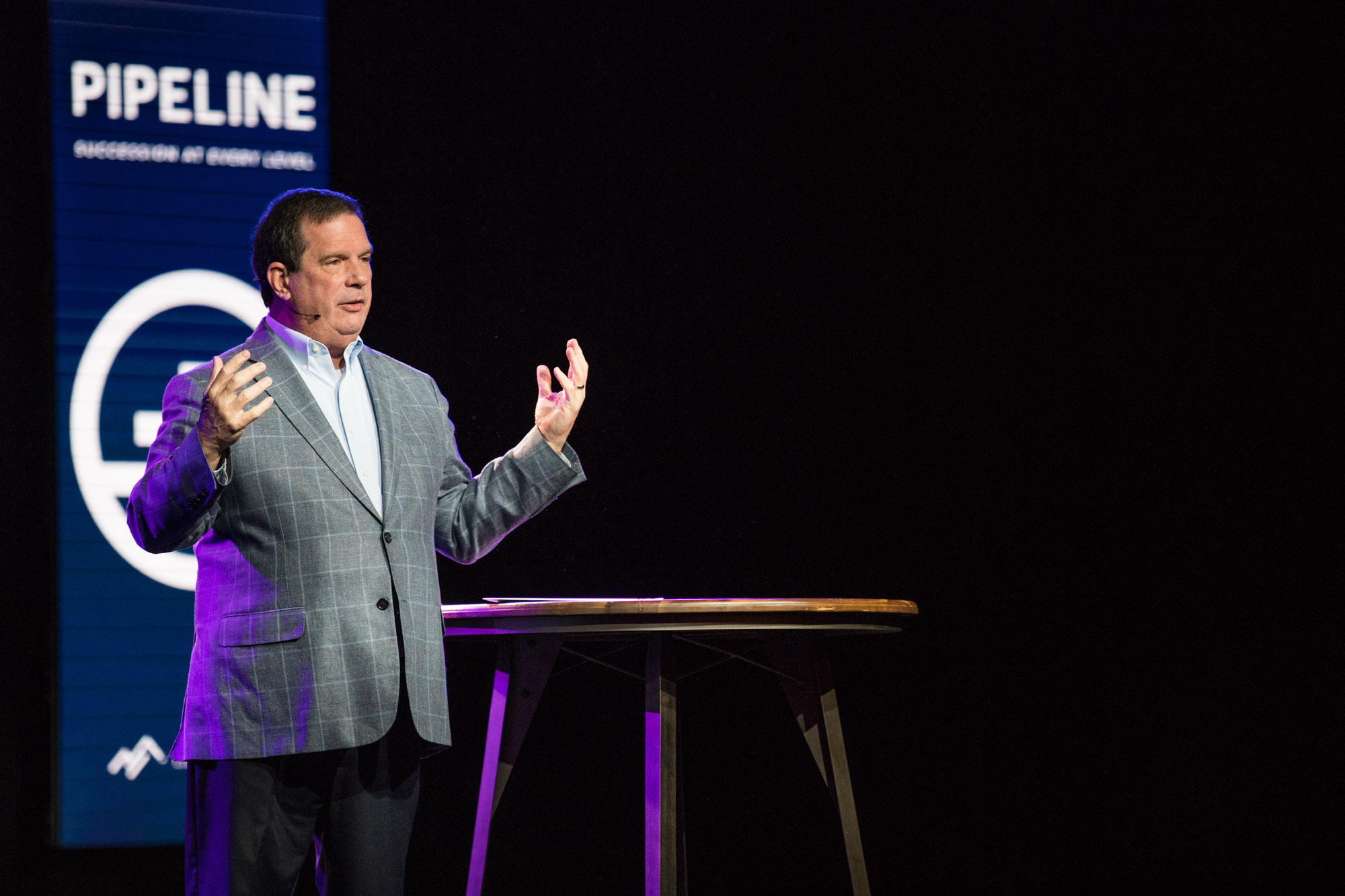
[SLIDESHOW=46238,46239]NASHVILLE (BP) — Before building leadership in others, church leaders should invest in strengthening their own character, speakers told attendees at the 2017 Pipeline conference.
Around 600 leaders gathered Oct. 11-13 in Nashville for the conference, “Succession at Every Level,” hosted by LifeWay Christian Resources. The event emphasized developing leaders throughout the church and preparing for smooth transitions.
Thom Rainer
LifeWay President and CEO Thom S. Rainer presented several keys to leadership succession, starting with humility.
“When successful succession takes place, there is a posture of humility, particularly from the one passing the baton, but from the one receiving the baton as well,” he said.
Humble leaders will affirm one another privately as well as publicly, Rainer said.
True humility, he explained, comes from leaders’ understanding of who they are in Christ.
“There are many cases, quite frankly, where our identity is wrapped up in our position instead of Christ,” he said, pointing out that no leader is irreplaceable. “No church, no organization, has to have that leader indefinitely or for the longer term.”
Another key to succession, Rainer said, is a willingness to start over — to re-evaluate a decision.
“There are times when you have to say, ‘I got it wrong.'”
Eric Geiger
Citing King David’s moral failure in 2 Samuel 11, Eric Geiger, LifeWay’s senior vice president, explained, “It won’t matter at all how intentional we’ve been in investing in others if we fail in our own character.”
Geiger shared three ways leaders often fail.
They isolate themselves. When King David remained in Jerusalem instead of going to war, “he removed people from his life who would have spoken truth to him,” Geiger said.
“It’s easy to surround yourself with people who will tell you just what you want to hear — people who are impressed with you. And if you are only surrounded with people who are impressed with you, you are living in isolation.”
They ignore their boredom. As King David walked around aimlessly on the roof, “his heart was not in awe of who God is and what God has done for him; he was bored and looking for something else,” Geiger said. “Any time we are looking for something else … it means we aren’t looking at Jesus, and it means we are headed toward destruction.”
They believe in themselves. “Attempting to stand in your own strength is a sure way to fail,” said Geiger of the prideful tendencies of leaders. “We must be cautious that because of our accomplishments — because of our positions — we don’t live with a sense of entitlement.”
H.B. Charles
H.B. Charles spoke on lessons he learned from the receiving end of a leadership transition. As a senior in high school, he became pastor of a Los Angeles church upon his father’s death. Charles now leads Shiloh Metropolitan Baptist Church in Jacksonville, Fla.
He encouraged attendees to study their church’s past but not to dwell there. “Do what you can to honor the past — with an eye toward moving the church forward.”
Charles urged new pastors to pace themselves when enacting change.
“Make haste slowly,” he said. “We make mistakes when we aim too low and try to get there too fast.”
Tami Heim
Tami Heim, president and CEO of Christian Leadership Alliance, encouraged churches to use the unique gifts of members who are local business and community leaders.
She likened the congregation to a jigsaw puzzle with business leaders resembling pieces that don’t always have an easy fit in the church. “You have pieces you set aside because you can’t figure out where they go,” she said.
Instead, Heim said, churches should identify local business leaders as resources.
“Make a commitment to know who they are,” Heim said. She suggested hosting events to allow leaders to network with one another and to give church leadership a chance to listen and learn.
Other speakers included Daniel Im, director of church multiplication for NewChurches.com at LifeWay; William Vanderbloemen, church leadership consultant; Bob Russell, former pastor of Southeast Christian Church; Léonce Crump, founding pastor of Atlanta’s Renovation Church; Mark Jobe, lead and founding pastor of Chicago’s New Life Community Church; and John Piper, founder and teacher of DesiringGod.org and former pastor in Minneapolis.
The conference also included coaching sessions for leadership teams.
The next Pipeline conference is scheduled for Feb. 22-23, 2018, in Orange County, Calif. Featured speakers include Jenni Catron, Josh Patterson, Carey Nieuwhof, Albert Tate and Will Mancini. For details, visit MyLeadershipPipeline.com.
















